Andreas Marschall’s Tears of Kali (2004)
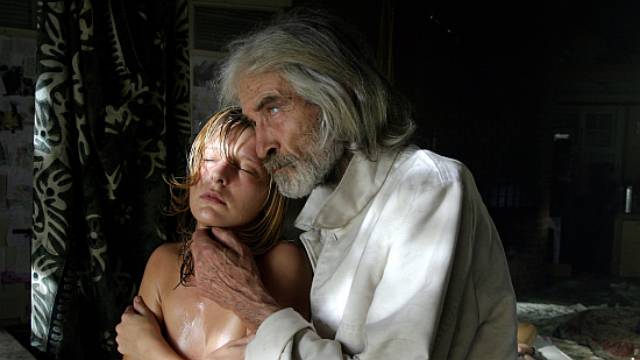
the surface of the world in Andreas Marschall’s Tears of Kali (2004)
Back in the before times, things were very different. My interest in cinema took root early and developed in my teens as I read books, went to theatres almost regardless of what was showing, watched vast amounts of television – everything fairly random and contingent. In that environment, I might read about something which piqued my interest and yet accept that it could remain inaccessible, perhaps for years, perhaps forever, my experience of it second-hand. And yet, while there might be some sense of disappointment, I accepted that state of things with little if any impatience.

But things began to shift with the rise of home video and the gradual release (on tape) of an ever wider range of titles spanning the history of the movies – in time, I could rent things as varied as Fritz Lang’s Metropolis and John Parker’s Dementia at the local video store. As the market expanded (and prices gradually came down), it began to seem possible that I’d finally be able to see (and own!) all those movies I’d read about, which had existed for years only in my imagination.
And then, two decades ago, the combination of DVD and the Internet seemed to open wide the vault doors – I could buy movies from all over the world and there seemed to be no end to what was being unearthed and made available. I immersed myself in J-horror and got my hands on a precious copy of the Lucertola DVD of Mario Bava’s masterpiece Rabid Dogs. If I read about something which interested me, it was quite possible that a short search would locate a copy and, with a few clicks, it would be on its way to me. Access, once a mere hope, came to be taken for granted. My former patience crumbled and an inability to find what I wanted triggered irritation and frustration and at times an irrational sense of aggrievement.
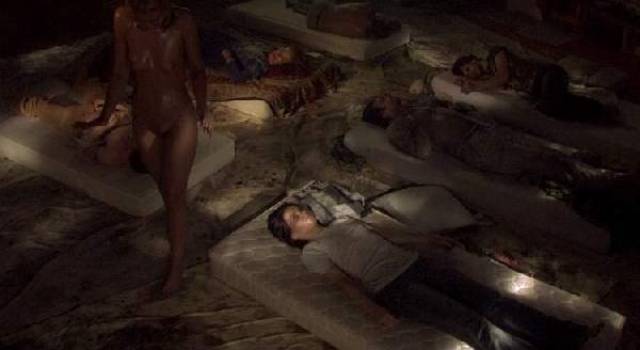
That feeling that anything should be more or less immediately available took a hit in recent years with the rise of streaming and a concomitant decline in physical media – to see a lot of things these days requires multiple subscriptions, and even then what’s available doesn’t seem to have the broad range and depth to which VHS, Laserdisk, DVD and Blu-ray had given access … and more frustratingly, you can’t trust that something streaming today will still be available a week or a month from now. So I cling to my collection and avoid streaming for the most part and continue to scour the Internet in hopes of finding what I want on disk.
I recently wrote about a movie I quite liked – Andreas Marschall’s Masks (2011), which I happened on by chance at a local used music and movie store. A glance at Marschall’s filmography shows a lot of music videos and shorts, but just one other feature. Naturally, I embarked on a search for the latter. Reviews are mixed at best, more negative than positive, but then Masks also received a mixed response, so that didn’t dull my interest. Amazon and eBay list several different editions of Tears of Kali (2004), all seemingly older DVD releases, and most either dubbed in French without English subtitles or dubbed in English. But on Amazon Canada, I found a three-disk German edition which apparently had English subtitles. It was pretty cheap, so I immediately ordered it.
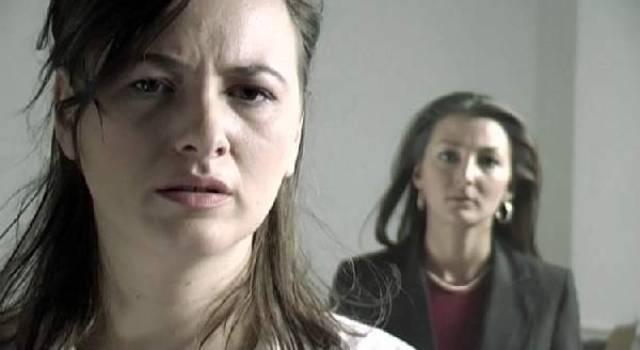
The shipping notification indicated that it was coming from the Netherlands, using one of the numerous services which seem to be private companies piggy-backing on regular mail. After the initial scan saying it had been picked up, there were no more updates before it showed up in my mailbox ten days later. Not too bad.
The packaging is attractive, a slipcase containing a fold-out case holding the movie itself, a supplementary DVD with extras, plus a soundtrack CD and booklet (in German). However, although it had been listed as “new”, the package was open and there was a store sticker in the tray beneath the CD, suggesting that it’s a used copy – not too surprising, I guess, as the set was released in 2006; chances of finding a “new” copy of a sixteen-year-old release are probably very slim. Still, as the disks all looked pristine, I wasn’t too bothered.
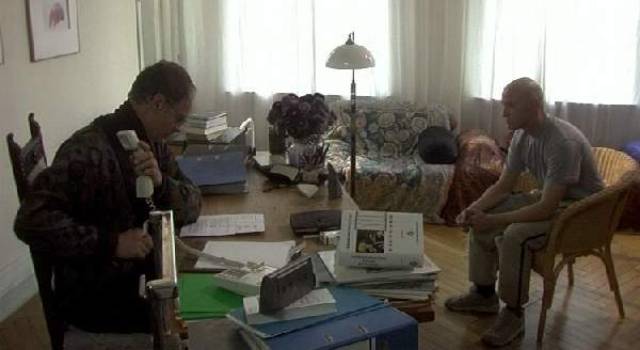
So I settled down to watch the movie and found myself engaged – it shares some themes with Masks, and Marschall’s sense of style is already apparent. Although the disk did have the benefit of the original German soundtrack with English subtitles, it was a bit disappointing to find that it was a non-anamorphic, letterboxed transfer – I hadn’t given much thought to the disk’s age until the picture showed up as a smaller rectangle in the middle of the screen. Zooming in would’ve taken care of that, except of course then the subtitles would have been cut off. Still, it was watchable. But then my player began to make strange noises, as if it was struggling to read the disk. And around the 74-minute mark it skipped a few times and then froze. I ejected and reloaded the disk and tried to skip to the chapter following the glitch … but it immediately froze again. So I put it in my older multi-region Blu-ray player and tried again. It froze in the same place. I was beginning to feel stressed – I had been immersed in the movie and now the final half-hour was inaccessible.
I even took out my old multi-region DVD player and tried that, to no avail. Finally, I tried it in two separate Blu-ray drives plugged into my laptop; the computer couldn’t even read the disk. All this would have been frustrating even if I hadn’t liked what I’d seen so far, but I did like the first two-thirds and I was suffering from a severe case of movie-interruptus. So back I went on-line and renewed my original search – dumb as it sounds, a part of me was hoping irrationally that I might find a newer edition, perhaps even a Blu-ray I’d missed first time around. But no, just the same French- and English-dubbed DVDs from more than a decade ago. Digging a bit deeper, though, I finally found a lo-res, English-dubbed copy on YouTube which looked and sounded like crap, but at least I was able to see where the story went, even though all sense of continuity (and viewer immersion) was lost.
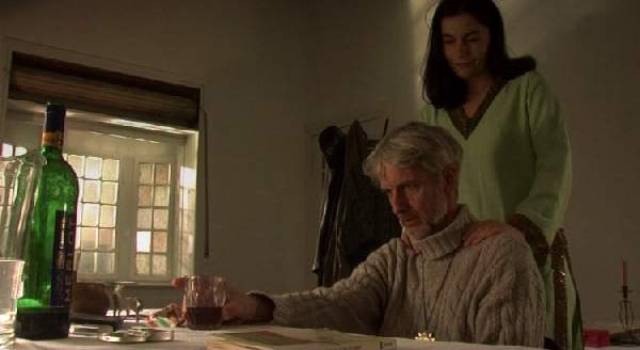
I contacted the seller and they were apologetic and immediately refunded my money – which was nice, but didn’t solve the big problem of having my experience ruined and no decent way of re-watching the movie. Perhaps stupidly, I did find that the same Amazon seller had a used copy of the same German three-disk edition for sale and so I ordered it again, hoping that a second try would be more successful (though annoyingly it was two bucks more than the original supposedly “new” copy).
I can’t recall when a movie has given me so much trouble; usually all you have to do is pop the disk in and watch without thinking – but this one has involved so much work that I’m determined to conquer it. If the replacement copy I’ve ordered turns out to be defective too, Tears of Kali will weigh me down like an albatross until someone finally brings out a new, remastered edition.[1]
*
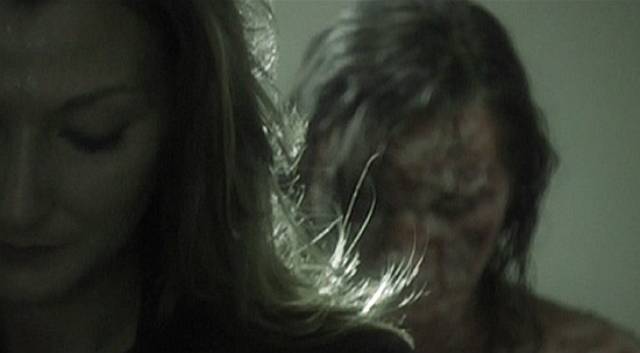
Needless to say, all this has somewhat obscured my impressions of the movie itself.
In making his first feature, Marschall came up with a transitional idea – after more than a decade of directing music videos, he devised a script consisting of three loosely linked short films wrapped in a frame. Based on ideas from a student film made the previous year (which is included on the supplementary disk), Tears of Kali prefigures the themes of Masks, indicating a commitment on Marschall’s part to exploring particular narrative and thematic concepts. The underlying core, akin to Masks’ Gdula technique, is a form of meditation developed by a pair of European transplants to India, Taylor and Eriksson, whose commune became a cult which led to a kind of madness in its followers. That madness manifests in each of the three stories.
As in the Gdula technique, Taylor-Eriksson meditation is aimed at stripping away the superficial layers of personality and connecting with something deeper and more primal which exists in the communal subconscious. The problem is that those who dive deeply seem to bring something monstrous back when they resurface. This manifests differently in each of the stories, giving the concept a slightly loose, not fully formed shape, though the film’s structure provides Marschall with a means of creating intense vignettes without being tied to a larger narrative imperative. The tone is established in the prologue, which contains the most horrific moment – a cult adherent, having been opened by the meditation to the reality beneath material existence, cuts off her own eyelids with scissors to ensure perpetual vision. This painful image imbues everything that follows with a potential for unsettling horror.
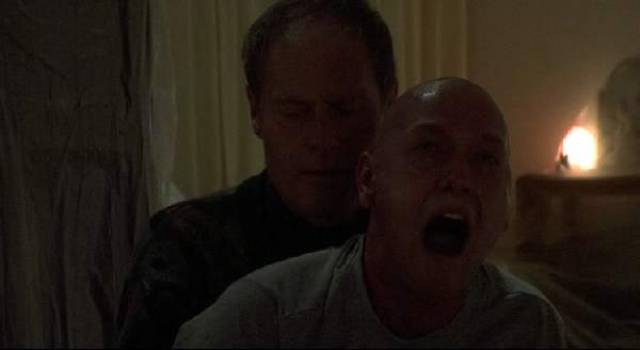
In the first story, Shakti, a writer is given permission to interview a woman named Elizabeth (Irena-Heliana Jandris), who is held in a psychiatric hospital. An adherent to the Taylor-Eriksson cult, Elizabeth has apparently been involved in the brutal murder and dismemberment of her lover Samarfan. Seemingly recovering from her madness, she agrees to an interview about the crime for the writer’s book about the case. But as the writer probes more deeply, it becomes apparent that she has more personal motives – she is, in fact, Samarfan’s sister Tansul Yilmaz (Celik Nuran) and she’s determined to discover what really happened. And to her own horror, she does find out when Elizabeth’s tenuous hold on sanity fractures and a murderous entity from the depths of her psyche reappears and attacks the writer, just as it had attacked and killed her brother.
In the second story, Devi, a drug addict named Robin Borg (Marcel Trunsch) is sent for therapy with Dr. Steiner (Michael Balaun) in order to avoid a custodial sentence after committing a violent assault. Unfortunately for Robin, Steiner is a follower of Taylor-Eriksson whose therapeutic approach involves digging deeply into his patient’s psyche to unearth buried desires – in this case, the root of Robin’s addiction and violence in a compulsion to escape his own skin, a compulsion the doctor prompts him to enact literally with a sharp knife.
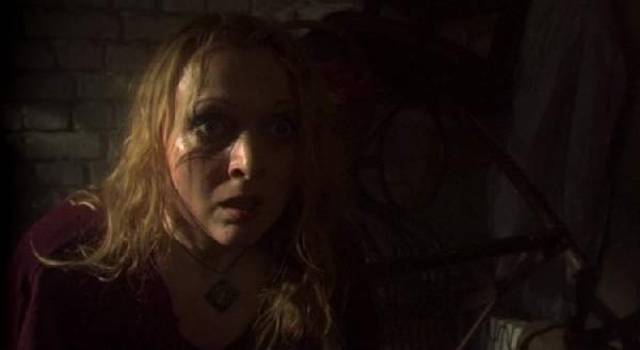
Finally, in Kali, a former member of the cult named Mira (Cora Chilcott) attends a group session with faith healer Edgar Cornelsen (Matthieu Carriere), a man who tries to suppress his own doubts with alcohol. During the session, he actually manages to drive something dark out of Mira, a malevolent entity which has possessed her since her own deep dive into Taylor-Eriksson meditation, a thing which scurries away into the cellar of the hall where Edgar conducts his work. Later, when everyone has left, the entity attacks Edgar’s assistant Tilde (Vroni Kiefer) in the cellar and he finds himself fighting a supernatural force he had lost his own belief in.
Each story is rendered in a claustrophobic, dramatically intense style, using the kind of allusive visual shorthand Marschall had honed as a maker of music videos. This creates a suggestive atmosphere which makes effective use of sparing gore effects and a feverish, hallucinatory approach to narrative which works well with the short story form. That kind of intensity would be hard to maintain in a longer form narrative, and I’m not sure whether Tears of Kali falters in its final third because it’s beginning to exhaust itself, or whether that impression is a result of the unexpected interruption I experienced at the beginning of the third story and the fact that I finally watched it with English dubbing. (Hopefully I’ll get a better sense of it when, after a suitable break, I watch it again.)
*
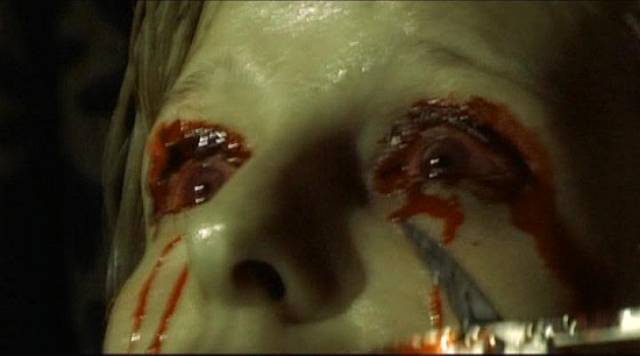
The disk of extras is not completely English-friendly – several behind-the-scenes featurettes have no subtitles – but there is a subtitled piece in which Marschall and producer Heiner Thimm talk about the origins of the production and the challenges of making a horror film in Germany. (The pair also provide a commentary on the feature, but in German without subtitles.) There’s a brief deleted scene (an unnecessary coda to the first story) and a couple of music videos, but the key extra is Marschall’s short student film Der Kali Prozess (2003), which interestingly lays the groundwork for both Tears of Kali and Masks.
In Berlin, a man named Elia (Anton Masie) offers an intense, advanced acting class to three students. His technique, which he calls the Kali Process, derives from his training with the Taylor-Eriksson group in India and involves the kind of psychologically abusive practices used by Matteusz Gdula at his school in Masks. As the session proceeds, violent forces are unleashed from the students’ subconscious. Even though it was made just a year before Tears of Kali, the short is much less technically polished, but nonetheless already displays Marschall’s ability to create an unsettling atmosphere and dramatic tension.
It seems odd that, given the obvious progression from Der Kali Prozess through Tears of Kali to Masks, Marschall has done so little since – just a couple of music videos and contributions to the anthology movies German Angst (2015) and Deathcember (2019).
______________________________________________________
(1.) Luckily, the replacement disk plays just fine, though I haven’t yet re-watched the movie. (return)
Comments